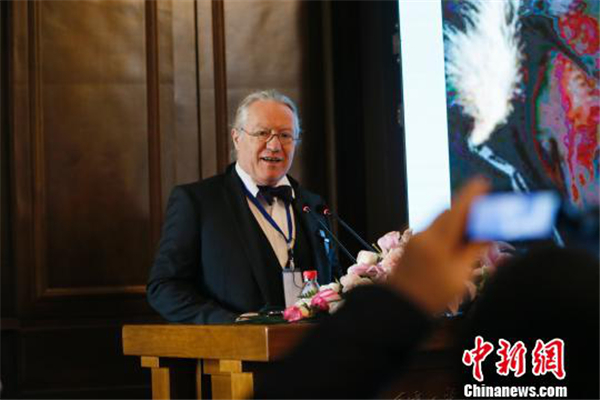Arctic research institutes established in Harbin Institute of Technology

The Arctic Research Institute and a training center of the University of the Arctic (UArctic) unveiled nameplates in Harbin Institute of Technology (HIT) on Feb 26, as part of China’s efforts to seek more international cooperation on research of the Arctic region.
The two institutes, as cooperation platforms of UArctic and HIT, will focus on the research subjects of: global persistent organic pollutants (POPs) emissions and climate change impact on the arctic ecological environment; migration, conversion, and incidence of pollutants in the arctic environment; and polar magnetic layer physics and navigation.
UArctic is an international cooperative network based in the Circumpolar Arctic region, consisting of universities, colleges, and other organizations with an interest in promoting education and research in the Arctic region.
HIT, as a leading national university with science and engineering as its core in China, officially joined UArctic in 2018 and became the only members from a non-Arctic country.
At the nameplate unveiling ceremony held in HIT, Shi Zhaohui, deputy director of Science and Technology Department of Heilongjiang province, and Lars Kullerud, chairman of UArctic, delivered a speech and called for mutual cooperation to address concerns on Arctic environment protection and restoration.
In addition, around 50 experts and scholars in the field of Arctic research were issued appointment letters, in an effort to provide intelligence support for the institutes.

A nameplate unveiling ceremony for the Arctic Research Institute and a training center of the University of the Arctic takes place at HIT on Feb 26. [Photo/Chinanews.com]

Scholars and experts are issued with appointment letters at HIT on Feb 26. [Photo/Chinanews.com]

Lars Kullerud, chairman of UArctic, delivers a speech at a nameplate unveiling ceremony held at HIT on Feb 26. [Photo/Chinanews.com]
MOST POPULAR
- 1 China to give visa-free treatment to another 9 countries
- 2 China fully opens manufacturing sector to foreign investors in landmark opening up move
- 3 China's import expo attracts record-breaking participating countries, exhibitors
- 4 China's door opening even wider to foreign visitors, businesses
- 5 China revises rules to ease foreign strategic investment in listed firms
Editors' Picks
 Video:
Peru sees new port open
Video:
Peru sees new port open
 Infographic:
China's public holidays for 2025
Infographic:
China's public holidays for 2025
 Infographic:
Basic facts of APEC
Infographic:
Basic facts of APEC
 Infographic:
Wrapping up the 7th CIIE: Data recap
Infographic:
Wrapping up the 7th CIIE: Data recap



